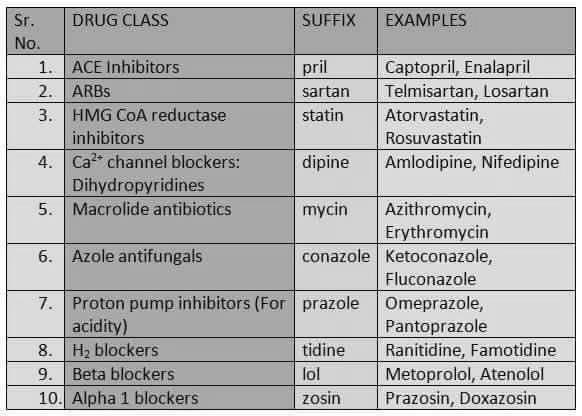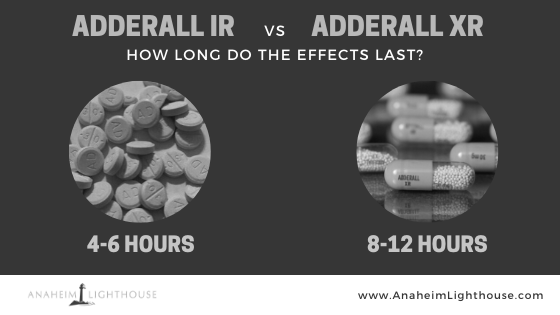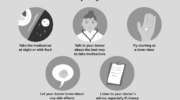There are several methods to memorize the various concepts taught in pharmacology classes. These include creating mnemonic devices, using infographics, and creating study groups. The best way to memorize pharmacology is to take it one class at a time. Learning everything at once can be overwhelming and lead to confusion. Learning each concept class by class can help you remember the different mechanism, indications, route of administration, metabolism, and side effects of a specific drug.
Creating a mnemonic device
The study of pharmacology can be intimidating for healthcare professionals, especially nurses. Fortunately, there are many different mnemonic devices that can make the material easier to remember. For example, the acronym ROME can help you remember the difference between metabolic and respiratory alkalosis, pH, and HCO3. Other mnemonic devices like the CAUTION acronym can help you remember important indicators of cancer.
One of the most common mnemonic devices focuses on the patient. It is often used as a tool to help pharmacy students remember the most important drug therapy parameters. This tool has been tested and shown to significantly improve students’ scores on the clinical examination. It has also been shown to improve students’ decision-making abilities. The study’s results indicate that students who use mnemonic devices are more likely to make good clinical decisions than students who do not.
The study involved randomized groups of second-year pharmacy students. Students were assigned to an intervention group or a control group. No significant differences were found in demographics. Overall, 95 students completed the study. Only two students were unable to complete the study or did not attend the PREP. The intervention group received a 30-minute presentation explaining how to use the mnemonic device.
Another useful mnemonic device is a flash card that prompts students to focus on certain categories. For example, drugs ending in mycin are macrolides. The macrolides share similar pharmacological properties and are metabolized in the same areas. In addition to the basic categories, the mnemonic device also prompts students to consider additional areas of critical importance.
Using infographics
Infographics are an excellent tool to help you commit large quantities of information to memory. These visual aids are particularly helpful for pharmacology students because they compress the important facts and figures into easily digestible chunks. They are also useful for conveying complex messages in an easy-to-understand format.
Infographics can be used to convey information to a variety of different audiences and are great for engaging discussions. A simple infographic can be used to illustrate the functions of the body and its various organs. The “Rose Diagram” created by Florence Nightingale in 1857 is an excellent example. It shows how deaths caused by epidemic diseases outnumbered deaths due to war. The infographic is simple and effective, and its popularity helped Nightingale become the first woman elected to the Royal Statistical Society.
The infographics were made for prescribers at a community pharmacy in western Pennsylvania. They were created for each prescriber based on the information they wanted to see in the infographic. They included data on patients with whom they had mutual relationships. These infographics were then shared with the prescribers during interviews to collect their feedback. Participants were then asked about their medication-related needs, their perception of the infographic format, and the interactions between the pharmacist and patients.
Pharmacology is a challenging subject. There are many different drugs, their side effects, and interactions with other drugs. It is crucial to develop an effective study strategy that will help you focus on a specific topic and eliminate unnecessary confusion. A good strategy should take into account what you need to know and how you’re going to learn it.

Creating a study group
Pharmacology is a complex subject, and memorizing the formulas for the various medications and substances can be difficult. To improve your study skills, you should figure out your preferred learning style, and use it to your advantage. Some students do better by rewriting their notes and others may benefit from creating flash cards.
Using flashcards is a great way to speed up your memorization process. These flashcards can include the drug name, its contraindications, and its mechanism of action. If you can’t remember the name of every drug, try to make a list of similar drugs that work in similar ways.
Use fun mnemonics and illustrations to help you remember the pharmacology. There are many free resources online for mnemonics and illustrations. You can find a lot of examples on Pinterest and Google. You can also create mnemonics and illustrations for other students to use. But you should be sure that you know your material well before you start teaching.
If you want to succeed in your pharmacology study, you need a study environment where you can focus and learn the material. It’s also important to have someone with you who can answer questions that you might have about the topics. Creating a study group can make it easier to get the job done and reduce the risk of stress.
Another effective method is to create mnemonics for each topic. You can use these mnemonics to learn each chapter of pharmacology. You can also use a website that offers pharmacology quizzes. A good online site will have a wide range of pharmacology quizzes.
Using flashcards
Pharmacology is a subject that requires quick memorization of a lot of information. The best way to do this is by using flashcards. These compact cards have all the information about a specific medication, including its name, class, and dosage. Students and medical practitioners alike can benefit from these handy study aids. Many of them are designed with illustrations for visual learners and mnemonics for easy recall.
One great thing about flashcards is that you can re-use them. Once you finish studying one class of drugs, you can use the same flashcards for the next. That way, you can reuse the material for a step two exam or a shelf exam. Pharmacology flashcards are particularly useful because there is a significant amount of redundancy between Steps 1 and 2, so you can reuse them time and again.
Pharmacology flashcards have a long list of advantages over traditional study methods. These cards allow you to quickly review a large number of different medications in just a few hours. They also allow you to easily recall important information without needing to reread the same material. Furthermore, they help you memorize the drug names that are most often prescribed. Pharmacology flashcards can help you learn the various terms and definitions in the course.
Flashcards can also be used to review key concepts in pharmacology. These cards contain information on the active ingredients and dosages of various drugs, including vitamins, minerals, and other substances. The cards also have information about drug interactions, monitoring and safety parameters. They also contain pictures and audio Q&As that provide you with detailed explanations of each drug. Furthermore, they contain updated information about the most commonly used medicines.

Learning drug side effects
Pharmacology is all about drugs, and learning their side effects is an important part of this course. By studying how drugs affect the body, you’ll be able to predict the effects they can have and how they can interact with one another. You’ll also have an easier time remembering the names of these drugs and their effects. A useful tool is to make a flashcard of these drugs, with information on the name, indications, contraindications, and mechanism of action on each card.
There are many resources available online to help you study pharmacology and its terms. Premade flashcard decks can be found on Brainscape, Anki, and Quizlet. You can also use paper cards if you prefer to study this way. You can also use mnemonic tools to memorize pharmacology terms and concepts. Some of these include Sketchy, Picmonic, and Osmosis. It’s important to choose the right resources to learn pharmacology so you can get the best results.
Learning drug side effects is the best way to remember drug interactions. It’s essential to know all the possible side effects of different drugs. By memorizing drug side effects, you’ll know which drugs can cause which side effects, and which ones you shouldn’t take. Using this approach, you’ll have a better chance of remembering important information and ensuring that you don’t repeat any of the information in your mind.
If you’re a new student to pharmacology, you’ll want to focus on groups of drugs and familiar side effects. For example, if you’re new to medicine, learn about the effects of isoniazid and pyridoxine deficiency. Then you can apply this knowledge to all the drugs in that class.
There are many ways to study for this class and stay on top of everything. One of the most important tips is to use study guides. These are great to use during clinical rotations, and should be included in your resource binder. It will save you tons of time and you can refer to them more than just this course.
Studying pharmacology
Studying pharmacology is a tough course, but it doesn’t have to be impossible. The key is to invest in good study techniques. A good study guide will show you exactly which material you should focus on in order to pass the course. This will ensure that you understand the material and don’t forget any important information.
Pharmacology is an excellent choice if you want to work in a field that protects human health. While it is a difficult major, it can also prepare you for a career in the health field. Most unis will require at least an A-level in chemistry and one or two other sciences. It is also important to understand how to apply through UCAS and how to write a strong personal statement.
Another helpful tip is to use visual presentations. These visuals can help you absorb the information much faster than the usual textual presentations. For example, if you’re learning the characteristics of a particular drug, an infographic can help you. Using infographics can also help you understand the mechanism of action, adverse effects, and the class of the drug.
Many universities are attempting to improve the quality of teaching in pharmacology. Creating effective learning environments is critical for student success and retention. The teaching of pharmacology is a demanding and interdisciplinary topic, requiring an extraordinary amount of effort from both educators and students.

In addition to studying pharmacology, students should also develop their patient counseling skills. These skills will be valuable during OSCE exams and on rotations. These skills will help them be effective pharmacists, whether they work in a hospital or vaccine clinic. In addition, these skills will give them a solid base to build on.
Active learning
In an effort to increase student engagement, many pharmacology instructors are turning to online games, videos, and case studies. These interactive tools are a powerful way to foster critical thinking skills and encourage students to actively participate in class discussions. These strategies have proved to be effective in improving students’ comprehension and retention of course content.
While pharmacology is an incredibly broad subject, it requires a high level of patience to retain and learn all of the important details. Students are required to remember hundreds of drugs and medical conditions. It is essential to avoid cramming and instead invest in effective study tools and techniques. These tools will help you memorize information and prevent you from becoming frustrated and overwhelmed by your coursework.
Students who are pursuing a career in medicine should consider enrolling in pharmacology classes. It is a challenging major for pre-med students, but studying pharmacology as an undergrad will give them an advantage when it comes to covering it in medical school.
Aside from reading the assigned readings ahead of time, pharmacology classes also require students to pay attention during lectures. Most pharmacology courses use powerpoint slides, so it is beneficial to print a copy of the slides so you can make notes directly underneath. This way, you can make notes only on important information.
Nursing students need to learn about pharmacology to be able to prescribe medication effectively. Pharmacology courses are essential to a career in health care. As the field of medicine is constantly evolving, nursing students need to be prepared to meet these challenges. Learning about drugs and their side effects will help improve patient care.
Pharmacology classes are difficult, but with the right preparation, you can pass your pharmacology class with flying colors. You can do this by following a few steps and strategies. First, create an effective study plan. For example, focus on memorizing the mechanism of action of the drugs. You can also use flashcards to help speed up the memorization process. You should include the drug’s name, dosage, indications, and mechanism of action on each card.
While pharmacology is not easy, it is also an important subject in medical school. Students who study this course can use these strategies to make their studies more interesting. Once you have mastered these tips, you will find pharmacology a rewarding course.
Stress management
Stress is a natural reaction to a situation. However, if it isn’t managed, it can become chronic and cause a host of health problems. Several factors can cause stress, including relationships, financial pressures, and work. Sometimes stress is healthy – it is our natural fight-or-flight response, telling us when to react to danger – but too much of it can affect our health and happiness.
Fortunately, medications are available to help manage the symptoms of stress. Although there is no specific family of medicines used to treat stress, a doctor can prescribe a variety of medications to target specific symptoms. These include antidepressants, tranquilizers, and beta-blockers. In addition to these treatments, physicians can use social prescribing as a tool to help patients manage stress and improve their quality of life.
Although many medical students report experiencing psychological distress, there is no scientific proof that they are more resilient than the general population. However, mindfulness-based stress management interventions have shown promise. In one study, a longitudinal stress management and resilience course was used to improve students’ well-being. Participants completed validated questionnaires before and after the intervention, and the data were analyzed by paired analysis.
Stress can affect the quality of care and can contribute to a host of medical conditions. If not treated early, it can lead to severe health problems. Nurses who are not able to cope with stress are more likely to make mistakes that may affect patient safety. Stress can even affect the ability to form emotional bonds with patients.







